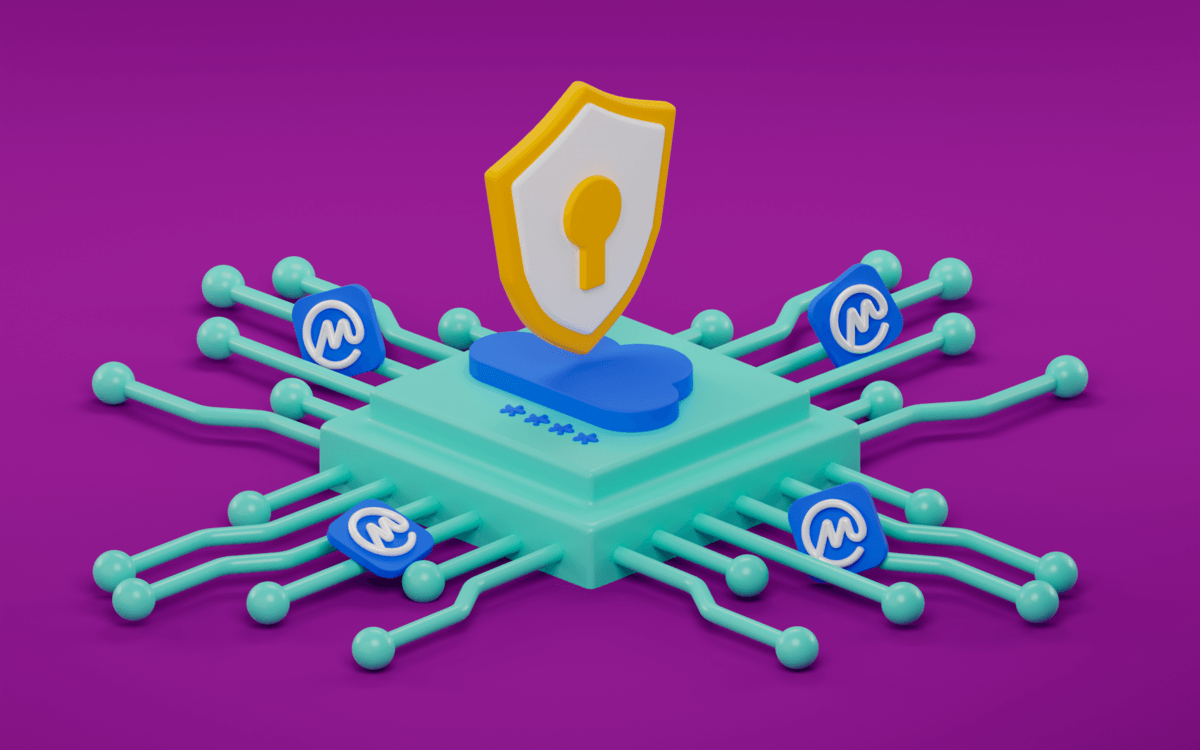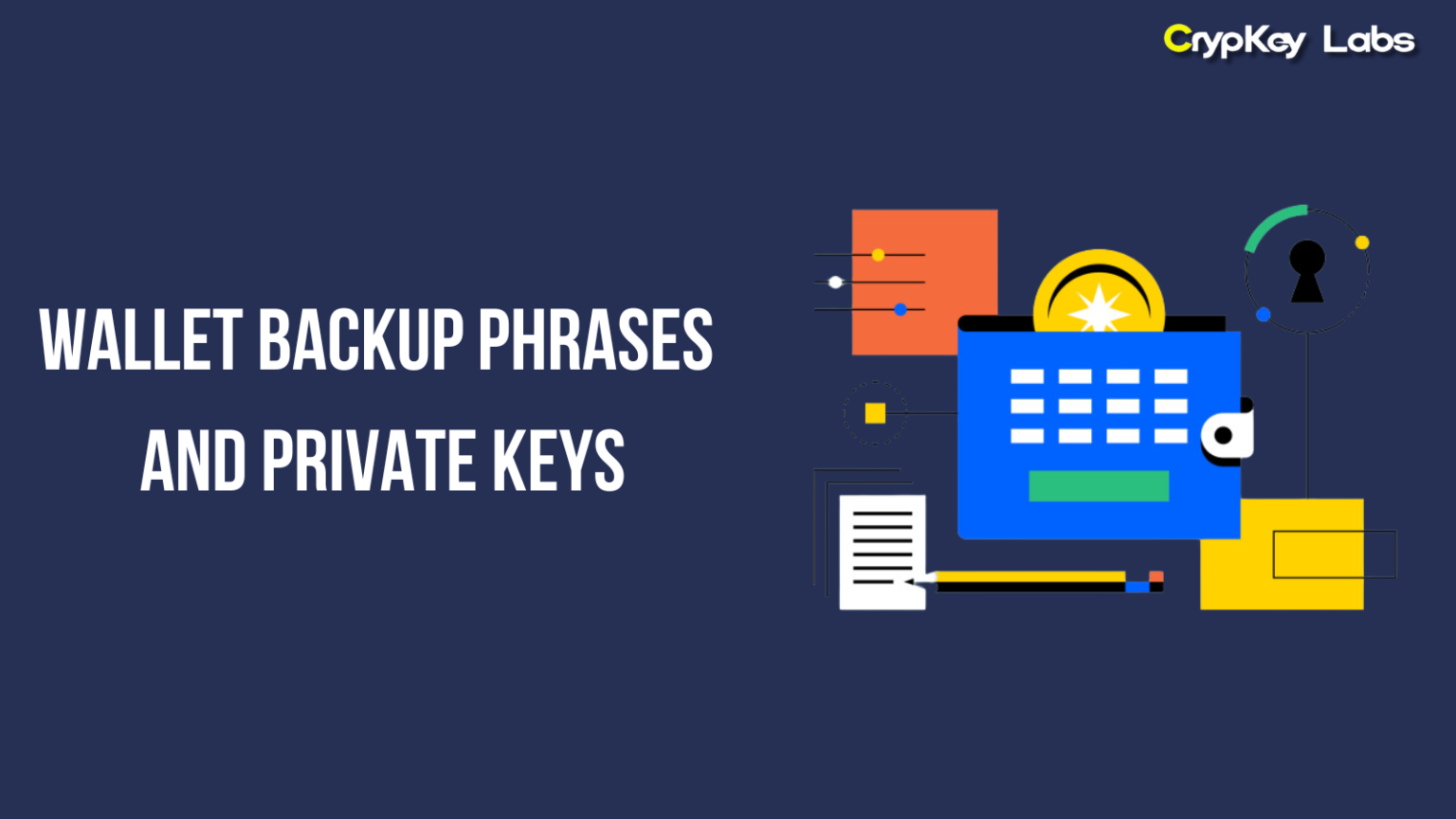Cryptocurrency has revolutionized the way we think about money, funds, and even ownership. As digital assets like Bitcoin, Ethereum, and many other cryptocurrencies continue to gain traction, one of the most crucial aspects of managing these assets is security. At the heart of cryptocurrency security are two concepts: wallet backup phrases and private keys.
If you’re new to crypto or just looking to better understand how to protect your digital assets, this blog will guide you through the ins and outs of wallet backup phrases and private keys. By the end of this post, you’ll have a clear understanding of what they are, how they work, and the best ways to keep them safe.
What is a Cryptocurrency Wallet?
Before diving into private keys and backup phrases, it’s essential to understand what a cryptocurrency wallet is. A cryptocurrency wallet is a tool that allows you to store, send, and receive digital currencies. However, unlike a physical wallet that holds cash, a crypto wallet doesn’t actually “store” your cryptocurrency. Instead, it holds the private keys needed to access your digital assets on the blockchain.
Types of Cryptocurrency Wallets:
- Hot Wallets: These are wallets connected to the internet, making them convenient but more vulnerable to hacking. Examples include mobile apps, desktop wallets, and web wallets.
- Cold Wallets: These wallets are offline, providing enhanced security. Examples include hardware wallets (USB-like devices) and paper wallets (physical printouts of your keys).
Your wallet is essentially the gateway to your crypto, and whether you’re using a hot or cold wallet, understanding how they secure your assets is critical.
Understanding Private Keys
A private key is at the core of your cryptocurrency security. In the simplest terms, a private key is a long string of letters and numbers, kind of like a password, that allows you to access and control your cryptocurrency. Without this key, you cannot send or access your crypto—no one can, not even the wallet provider.
How Do Private Keys Work?
When you create a cryptocurrency wallet, a private key is automatically generated. This key acts as your digital signature when you make a transaction. On the blockchain, your private key corresponds to a public key, which others can see and use to send you cryptocurrency.
Think of the public key as your email address and the private key as your password. Just like you wouldn’t give someone your email password, you shouldn’t share your private key.
Why Is Your Private Key Important?
Your private key is the most important piece of information when it comes to accessing your cryptocurrency. If someone else gains access to your private key, they can steal your digital assets. Conversely, if you lose your private key, you lose access to your cryptocurrency forever. There’s no “reset password” button in the crypto world!
What is a Wallet Backup Phrase?
Enter the wallet backup phrase, also known as a seed phrase. A wallet backup phrase is a sequence of 12, 18, or 24 randomly generated words that serve as a backup for your private key. If you lose access to your wallet—whether you forget your private key, lose your device, or accidentally delete your wallet—the backup phrase allows you to restore it.
How Is a Wallet Backup Phrase Different from a Private Key?
While both the private key and the backup phrase provide access to your cryptocurrency, they serve slightly different purposes:
- The private key is what you use for day-to-day transactions and access.
- The backup phrase is what you use to recover your wallet if something goes wrong.
In essence, the backup phrase is a simplified representation of your private key that’s easier to write down and remember. Without the backup phrase, regaining access to your wallet can be nearly impossible if your private key is lost.
How Are Backup Phrases Generated?
Backup phrases are created using complex algorithms that ensure randomness and uniqueness. Each word in the phrase is selected from a predefined list, and together they form a phrase that, when entered correctly, can regenerate your wallet and private key.
How Private Keys and Backup Phrases Work Together
Private keys and backup phrases are tightly connected. When you create a new wallet, both a private key and a backup phrase are generated. The backup phrase is essentially a human-readable form of the private key, meaning that if you lose your private key, you can use the backup phrase to regenerate it.
What Happens if You Lose Your Private Key or Backup Phrase?
Losing your private key is a big deal, but not necessarily the end of the world—if you have your backup phrase. Here’s a breakdown of scenarios:
- Lost Private Key but Have Backup Phrase: You can regenerate your private key using your backup phrase and regain access to your wallet.
- Lost Backup Phrase but Have Private Key: You can still use your wallet normally, but if anything happens to your device or wallet, you won’t be able to recover it.
- Both Lost: Unfortunately, if you lose both your private key and backup phrase, there’s no way to access your wallet again. Your cryptocurrency will be lost forever.
Best Practices for Securing Private Keys and Backup Phrases
Now that you understand how critical private keys and backup phrases are, it’s time to talk security. Here are some best practices for securing these vital pieces of information:
1. Store Offline
For maximum security, private keys and backup phrases should always be stored offline. Writing them down on paper or using a hardware wallet ensures they are not vulnerable to online hacks or malware.
2. Avoid Screenshots or Cloud Storage
Never store your private key or backup phrase in a digital file on your computer or in the cloud. These methods are prone to hacking and data breaches. Taking a screenshot and saving it on your phone is also risky, as phones can be hacked.
3. Use Multiple Backups
It’s smart to have multiple copies of your backup phrase, stored in separate secure locations. This adds redundancy in case one copy is lost or damaged. However, be cautious about who has access to these backups.
4. Consider Hardware Wallets
Hardware wallets are one of the safest ways to store your private keys. These devices keep your keys offline and require physical confirmation of transactions, making it nearly impossible for hackers to access your assets remotely.
Common Mistakes and How to Avoid Them
As with anything security-related, mistakes can happen, but they can also be avoided. Here are some common pitfalls people encounter with private keys and backup phrases:
1. Sharing Private Keys or Backup Phrases
One of the cardinal rules of cryptocurrency is to never share your private key or backup phrase. Even if someone seems trustworthy, sharing these with anyone can result in the loss of your crypto. Scammers often pose as tech support or helpful users to trick people into giving up their keys.
2. Losing Access to Backup Phrases
Misplacing your backup phrase can be devastating. Many people make the mistake of not writing it down or storing it securely. Always treat your backup phrase like the keys to a safe full of money—because essentially, that’s what it is!
3. Falling for Phishing Attacks
Phishing attacks, where scammers try to trick you into entering your private key or backup phrase on a fake website or app, are common. Always double-check URLs and only use official wallet websites or apps to avoid falling for these scams.
The Future of Wallet Security
As cryptocurrency continues to grow, wallet security is evolving to meet the demands of users. Here are some exciting trends shaping the future of wallet security:
1. Multi-Signature Wallets
Multi-signature (multi-sig) wallets require multiple private keys to authorize a transaction, adding an extra layer of security. This is particularly useful for businesses or individuals who want to ensure that no single person has full control over the assets.
2. Biometric Security
Some wallet providers are experimenting with biometric security, such as fingerprint or facial recognition, to add an additional layer of protection. While this technology is still in its early stages, it offers an exciting glimpse into the future of wallet security.
3. More User-Friendly Backup Solutions
As the industry matures, wallet providers are developing more user-friendly ways to manage and secure backup phrases and private keys. Some are exploring social recovery options, where trusted contacts can help you regain access to your wallet.
Conclusion
Wallet backup phrases and private keys are essential to the security of your cryptocurrency. Understanding how they work and following best practices for their safekeeping is crucial for protecting your digital assets.
In a world where digital currencies are becoming more integrated into our daily lives, taking security seriously is no longer an option—it’s a necessity. Whether you’re new to crypto or a seasoned veteran, always prioritize the security of your private keys and backup phrases, and stay informed about the latest wallet security innovations.







